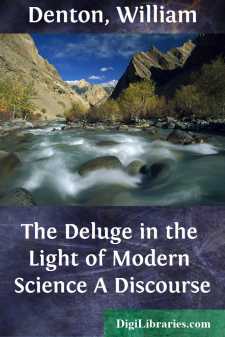Categories
- Antiques & Collectibles 13
- Architecture 36
- Art 48
- Bibles 22
- Biography & Autobiography 813
- Body, Mind & Spirit 142
- Business & Economics 28
- Children's Books 15
- Children's Fiction 12
- Computers 4
- Cooking 94
- Crafts & Hobbies 4
- Drama 346
- Education 46
- Family & Relationships 57
- Fiction 11828
- Games 19
- Gardening 17
- Health & Fitness 34
- History 1377
- House & Home 1
- Humor 147
- Juvenile Fiction 1873
- Juvenile Nonfiction 202
- Language Arts & Disciplines 88
- Law 16
- Literary Collections 686
- Literary Criticism 179
- Mathematics 13
- Medical 41
- Music 40
- Nature 179
- Non-Classifiable 1768
- Performing Arts 7
- Periodicals 1453
- Philosophy 64
- Photography 2
- Poetry 896
- Political Science 203
- Psychology 42
- Reference 154
- Religion 513
- Science 126
- Self-Help 84
- Social Science 81
- Sports & Recreation 34
- Study Aids 3
- Technology & Engineering 59
- Transportation 23
- Travel 463
- True Crime 29
The Deluge in the Light of Modern Science A Discourse
by: William Denton
Categories:
Description:
Excerpt
If the Bible is God's book, we ought to know it. If the Creator of the universe has spoken to man, how important that we should listen to his voice and obey his instructions! On the other hand, if the Bible is not God's book, we ought to know it. Why should we go through the world with a lie in our right hand, dupes of the ignorant men who preceded us? It can never be for our soul's benefit to cherish a falsehood.
Science is, perhaps, the best test that we can apply to decide the question. Science is really a knowledge of what Nature has done, and is doing; and since the upholders of the divinity of the Bible believe that it proceeded from the Author of nature, if their faith is true, it cannot possibly disagree with what science teaches.
Science is a fiery furnace, that has consumed a thousand delusions, and must consume all that remain. We cast into it astrology and alchemy, and their ashes barely remain to tell of their existence. Old notions of the earth and heavens went in, and vanished as their dupes gazed upon them. Old religions, old gods, have become as the incense that was burned before their altars.
I purpose to try the Bible in its searching fire. Fear not, my brother: it can but burn the straw and stubble; if gold, it will shine as bright after the fiery ordeal as before, and reflect as perfectly the image of truth.
The Bible abounds with marvellous stories,—stories that we should at once reject from their intrinsic improbability, not to say impossibility, if we should find them in any other book. But, among all the stories, there is none that equals the account of the deluge, as given in the sixth, seventh, and eighth chapters of Genesis. It towers above the rest as Mount Washington does above the New-England hills; and, as travellers delight to climb the loftiest peaks, I suppose that many would be pleased to examine this lofty story, and see how the world of truth and actuality looks from its summit.
According to the account, in less than two thousand years after God had created all things, and pronounced them very good, he became thoroughly dissatisfied with every living thing, and determined to destroy them with the earth. He thus expresses himself: "I will destroy man, whom I have created, from the face of the earth,—both man and beast, and the creeping thing, and the fowls of the air; for it repenteth me that I have made them." Again he says to Noah, "The end of all flesh is come before me; for the earth is filled with violence through them, and behold I will destroy them with the earth."
Why should the beasts, birds, and creeping things be destroyed? What had the larks, the doves, and the bob-o-links done? What had the squirrels and the tortoises been guilty of, that they should be destroyed?
He proceeds to inform Noah how he will do this: "And behold I, even I, do bring a flood of waters upon the earth, to destroy all flesh, wherein is the breath of life, from under heaven; and every thing that is in the earth shall die." And we are subsequently informed that "every thing that was in the dry land died." But why not every thing in the sea?...


